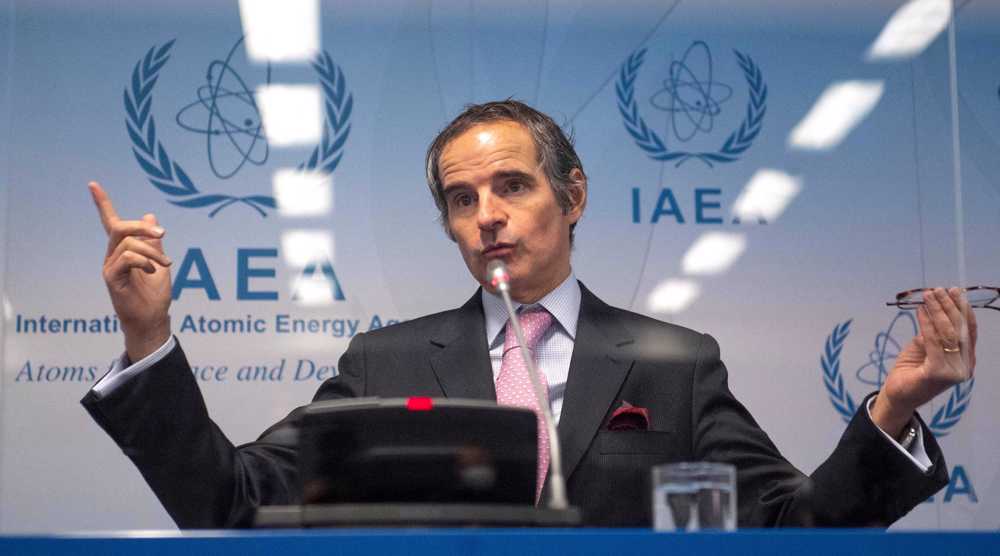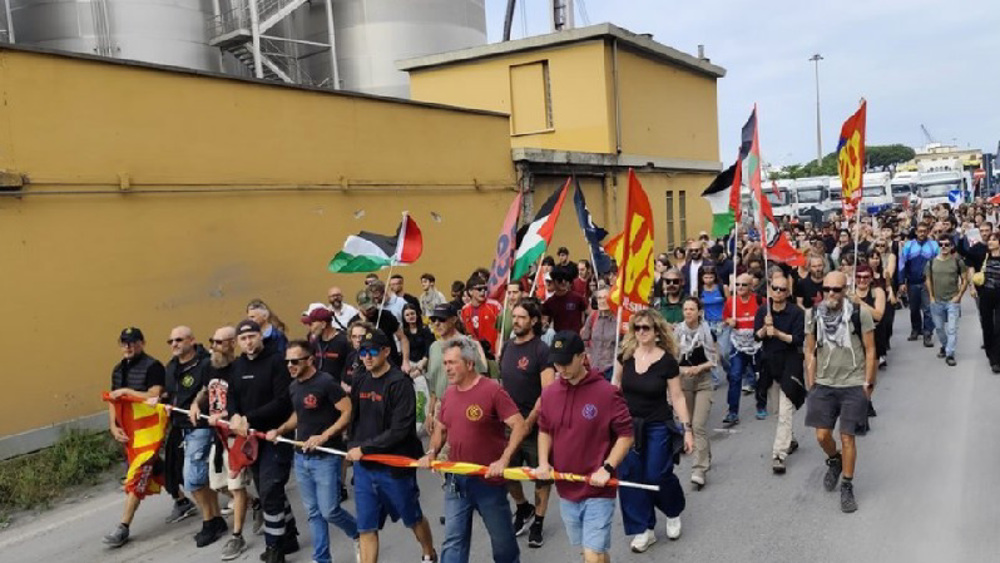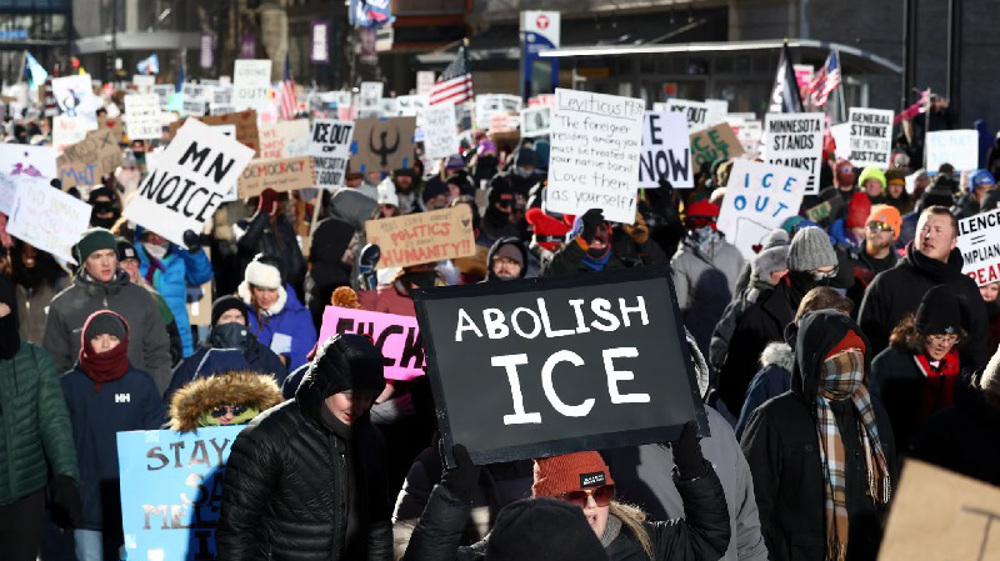JCPOA rests on broken promises and blatant lies
2015 was the year of a landmark deal, the JCPOA or Joint Comprehensive Plan of Action. But before it could take off, it had its wings clipped. In 2018 the former US administration pulled out of the deal.
But the current year has, with modest moves, also accomplished something as significant: STEPS taken to SAVE the JCPOA from demolition. The outlook is good but Iran is not banking on the outcome.
The JCPOA or Iran Nuclear Deal was between Iran and the P5+1 countries, which are the US, UK, France, Russia, China and Germany.
The 22nd February saw a logical turn of events. Iran was to end unrestricted visits by nuclear inspectors that day if the US had not removed all sanctions as commanded by the JCPOA.
As expected, the US didn’t lift any of the sanctions. However, contrary to expectation, Iran struck a deal directly with the IAEA, the UN’s nuclear watchdog.
This would buy a further three months, to give diplomacy another chance to make the deal work. Iran’s nuclear activities WOULD be recorded, but by Iran itself.
After 3 months, should sanctions still not have been lifted, Iran would destroy the recording, which would leave a gap in the nuclear watchdog’s reports on this country.
The E3, the UK, France and Germany, are uncomfortable with that, although they haven’t done much to give Iran an incentive to do otherwise.
The sanctions referred to are the UN’s nuclear-related economic sanctions imposed on Iran. These were settled by the JCPOA.
But when the US unilaterally pulled out of the deal in 2018, it reimposed and re-enforced the sanctions as US sanctions.
US sanctions are imposed to stay
To revive the JCPOA Iran says all sanctions should be lifted so that Iran can get back to fulfilling its commitments; how far do you think the US can pressure Iran with sanctions?
I believe that the policy of sanctions against the Islamic Republic is a well-established American policy. Biden cannot take steps to eliminate it even if he wants to, because this policy is planned behind the scenes by centers of power such as AIPAC, and they are the ones who decide on Iran-US relations. This continues to remain so. It's been the case since the Carter era when the first game of the sanctions was played, until today, 42 years later, across all US administrations, no matter Democrats or Republicans.
Sa’dollah Zarei, Andishe Sazan-e Noor, Strategic Studies, Head
So far the West has taken some symbolic steps towards salvaging the nuclear deal. The E3 are brokering talks.
The US is willing to talk but Iran is suspicious that the US and western parties to the deal are being insincere. The West would be wise in holding JCPOA talks; that is strictly nuclear-related talks.
But they appear to be using talks as a confidence-building strategy to push for more terms. One of which is that Iran scrap its ballistic missile defenses which has nothing to do with the JCPOA.
Any talks would be redundant
The latest development, if it can be called that, is Iran suddenly saying it will not sit down to talk.
To say that we won’t go back to the negotiating table may be misinterpreted. Our position is that we have already come to negotiate and spent a lot of our country’s time, but did not see any results. We’re now ready to negotiate under the same framework of P5+1, provided that we see the fruits of our previous lengthy negotiations. Because negotiations are not done for the sake of talks, they are carried out for a specific pre-defined purpose that both sides have already agreed upon.
Mehdi Fazaeli, Political Analyst
Sanctions part of strategy, weapon of containment
To them talks is only a means to containment of Iran’s power; that’s why they have not been loyal to their undertakings; the major merit they have always promised to provide to Iran has been the removal of sanctions.
That is their major undertaking in all these agreements but they (have) never done that because sanctions is part of their strategy and (a) weapon of containment, which ,along with military threats, is aimed at pushing Tehran to gain more concessions and to slow down Iran’s growth in various military and nuclear industries.
Mostafa Khoshcheshm, Political Analyst
Iranians, both civilians and officials, hailed their government’s move. Even staunch principalists, be they individuals or daily papers, have hailed the deal between the AEOI, the Atomic Energy Organization of Iran, and IAEA, the International Atomic Energy Agency, as a logical move in maintaining Iranian national interests.
Now not everyone in Iran is happy with the government’s logical move. The majority of Parliament, mostly principalists headed by House Speaker Qalibaf, is up in arms.
On what grounds are MPs incensed?
The US not only pulled out of the nuclear deal but also continued to find new ways to sabotage what was left of the deal.
Finally Parliament, or Majlis, passed an urgency law in December 2020, to be executed from 22nd Feb 2021, should the US not return to the deal, and more importantly, fail to lift sanctions.
After all, the JCPOA was signed to restrict Iran’s peaceful nuclear programme, in return for sanctions’ RELIEF, not sanctions’ INCREASE!
The new law was called “The Strategic Act of the Islamic Consultative Assembly to Remove Sanctions”. And it GAVE the US time to lift sanctions.
Apparently the US needs a lot more time, and for giving it that time, Parliament wanted to refer the administration’s deviation from the parliamentary bill to the judiciary.
But after the recommendation of Iran’s Leader for resolving differences, the two bodies are settling their dispute through a joint committee.
Speaking of the Parliament’s law, if we want to scrutinize it meticulously with an emphasis on legal matters, one can find some flaws in it. We can say that some of the words used in the agreement need to be more accurately interpreted.
But on a macro level, I believe what transpired, meaning the measures the government took and what the IAEA did wasn’t compatible with the Parliament’s resolution.
Of course, the Parliament’s reaction is understandable. The lawmakers were worried based on what happened before, that there could’ve been an oversight by the government and that the law might not be implemented. This was a reaction, which, one could argue, was sort of an overreaction.
Mehdi Fazaeli, Political Analyst
Enough is enough
Iran has come to a point when it refuses to sit and wait for its rights to be thrown at it a bread-crumb at a time. So it decided to further exert pressure on Western signatories to the deal, to get sanctions lifted once-and-for all, which is why on 2 December 2020 parliament proposed the said law: “The Strategic Act of the Islamic Consultative Assembly to Remove Sanctions”.
The final action taken, as a result of that Act of parliament, would be to halt free-at-will inspections of nuclear sites by pulling out of the additional, voluntary, protocol to the nuclear Non Proliferation Treaty, NPT, which allows surprise inspections of nuclear sites.
It was an agreement that somewhat prevented tensions in relations between Iran and the IAEA without breaching the law passed by the Iranian Parliament.
It gave the IAEA a three-month deadline to make attempts so the West upholds its commitments under the JCPOA, and Iran would not have to abandon implementing the Additional Protocol altogether.
In my opinion, it was a good joint opportunity to continue the relations between Iran and the IAEA and to reduce the level of tension between the two to some extent.
Sa’dollah Zarei, Andishe Sazan-e Noor, Strategic Studies, Head
Biden has little political capital
President Biden did promise a return to the deal in his electoral campaign. He doesn’t , however, have much political capital to fall back on. But there are ways around that. Some solutions, proposed and reported in the Guardian, were that “The US… could quietly end its obstruction of Iran’s $5bn IMF request for Covid relief, or give the nod to the release of frozen funds in other countries under arrangements ensuring they are used for humanitarian purposes”.
They need to realize that the sanctions did not deliver the result they desired. Because they're exerting pressure to force us to change our ways. They need to realize the attempts haven’t been effective and have failed to bring about any changes, and we’re even getting stronger.
For example, on the nuclear issue, the issue of enrichment to a 20% purity level has been raised. The Leader of Iran’s Islamic Revolution also hinted at the possibility that we raise that level to 60% purity.
When they see that their attitudes will lead the Islamic Republic to act in such ways, I think if they’re smart, they will change their approach.
Mehdi Fazaeli, Political Analyst
The problem with US sanctions
The problem with US sanctions is that they are said to be aimed at regime change or behavioral change on the part of governments sanctioned or boycotted.
But in actuality you cannot impose sanctions on a government without immense collateral damage inflicted on its people.
So US sanctions don’t work; they don’t achieve the stated goals. They often backfire in fact, which leads us to conclude that US sanctions are not brought into play to serve US foreign policy but only to serve the interests of politicians.
I’m not saying they’ll lift the sanctions. They won’t. We don’t see any signs of goodwill. Our position is that they weren’t even after clinching the JCPOA, they were looking beyond it.
They thought they could use the JCPOA as a platform, because the nuclear issue is neither a remarkable advantage to Iran, nor is a serious emergency for the West. If we have access to the 3rd, 4th, 5th, or 6th generation centrifuges, they are way ahead of us.
They ask us not to make nuclear bombs, which we don’t want to make, but they have such weapons themselves.
Sa’dollah Zarei, Andishe Sazan-e Noor, Strategic Studies, Head
Presently a couple of dozen countries are under some form of US sanctions, which are said to have left hundreds of thousands, even millions, suffering in the world. And the Trump-era sanctions imposed on Iran have been the harshest ever in US history.
To Iran however, the notion of sanctions was nothing new. They’ve been ongoing for four decades, since the Islamic revolution and the war imposed on this country by Saddam Hussein and a world of allies in the 1980s. Iran is still standing.
US miscalculation no surprise
The US’s miscalculation is no surprise, but it IS quite easy to miscalculate the complexity of the Iranian economy. Iran is a relatively big country with many borders and a population of some 85 million. Yes unemployment and high inflation and a devalued rial remain as bitter realities. But it is manufacturing that accounts for a fifth of Iran’s employment.
Everyone in Iran from officials to normal people and different parties and political camps; and average citizens everyone now believes that US is not serious and honest and is not going to remove the sanctions as a result everyone believes in resistance and that includes expanding ties with other nations including china as well as Russia and regional nations and also work on domestic economy. Iranians believe that they should invigorate their domestic and national economy as it’s called economy of resistance in order to defuse the sanctions and they know it pretty well and learned it from experience of the past two decades.
Mostafa Khoshcheshm, Political Analyst
Iran reach beyond US Treasury Department
This country has substitute industries to fall back on, with enough manpower-in-waiting and quite a few neighbors and friends to find ways to export its goods to.
With banking sanctions, it IS difficult to come by the raw materials needed for manufacture.
But factories haven’t come to a halt. And cars and metals and plastics are still being produced. As Suzanne Maloney, an Iran specialist at the Brookings Institution put it:
“Iran does have a reach that goes beyond that of the U.S. Treasury Department."
Joe Biden himself seems to be in a sort of an impasse domestically about the sanctions. What other policies might he adopt in order to make the deal work?
Deciding on what we want to do is more important than what the Americans want to do.
As long as we wait for the Americans to do something, this problem won’t be solved.
We need to make our own decisions and suppose that the sanctions are going to stay in place.
We need to make plans about how to run the country under these circumstances, which is quite possible. That is, if there is a better coherence and trust in the existing capacities of the country and we use the capacities properly, with the experience we have gained in resisting sanctions, we can certainly be much better off from now on and improve the situation, even if sanctions aren’t lifted.
Mehdi Fazaeli, Political Analyst
Joe Biden was vice president to the level-headed President Obama, in whose time the JCPOA was signed to lift sanctions in return for controlling Iran’s nuclear programme. But even then the final knot was not tied.
Biden promised US return to JCPOA
And now President Biden, in spite of his election promise to return to the JCPOA, began by demanding Iran return to full compliance before he gets back into the deal.
Well Iran is happy to enrich uranium for peaceful purposes to 60 percent enrichment, up from its 20 percent. It was the US that pulled out the JCPOA to begin with and Iran expects the US to take the first step. A step by step return to the deal, Iran is content on. Or is it?
The fact that Mr. Zarif came up with a solution doesn’t mean the Islamic Republic has decided on it. We did not accept the step-by-step approach at all.
Iran has said that all sanctions must be lifted in accordance with the JCPOA. We’re saying that in order for us to retrace the steps we have taken over the past year, you need to lift the sanctions but not in a gradual or step-by-step manner.
We’re at the 100th step. We’ve honored our obligations step by step and are now standing at the last one.
Sa’dollah Zarei, Andishe Sazan-e Noor, Strategic Studies, Head
Iran does insist: “The onus is on the offending party to return, restart, and compensate for the damages as well as to reassure that they would not renege again.”
This kind of strategy that’s called fortifying sanctions wall would serve the US containment strategy no matter it is biden Obama or trump. That’s exactly what trump’s national security advisor said that no matter who would win the presidential elections, this fortifying sanctions would serve the US negotiating power and the containment strategy towards Iran.
Mostafa Khoshcheshm, Political Analyst
The recent US attack on the Syria-Iraq border has raised Iranian suspicions further.
The US military on February 25 struck a site in Syria used by two anti-Daesh paramilitary groups said to be backed by Iran. This was in response to rocket attacks on American forces in the region in the past two weeks, which the targeted Syrian groups said they had nothing to do with.
Either way Biden’s act was frowned upon, not only in this region but at home, as he did not seek the necessary congressional authorization for his military strike.
Iranian Foreign Ministry spokesperson, Saeed Khatibzadeh, said that the US troop presence in Syria was illegal he accused the country of training terrorists.
The need to “extricate” not “escalate”
Representative Ro Khanna, a California Democrat on the House Armed Services Committee, told CNN, "there is absolutely no justification for a president to authorize a military strike that is not in self-defense against an imminent threat without congressional authorization. We need to extricate from the Middle East, not escalate."
Biden is now "the fifth consecutive US president to order strikes in the Middle East; or West Asia.
There is no reason for the Americans to want to target an Iraqi unit that is serving at a critical point of the conflict with Daesh, in the Deir Ez-Zor region of Syria. This attack has raised a big question. Well, the answer to that question is that the Americans have revealed their secret alliance with Daesh. Why should Kata'ib Hezbollah and the PMU who are part of Iraq’s security forces come under attack by both the U-S and Daesh at the same time? This raises a serious question.
Sa’dollah Zarei, Andishe Sazan-e Noor, Strategic Studies, Head
Apparently the US attack was on a site used by Iraqi Hezbollah militias near al-Hurri village right on the Syrian-Iraqi borders inside Syria.
Kata'ib Hezbollah did claim that one of its fighters had been killed, and that he "was stationed on the Iraqi-Syrian border to protect Iraqis from Daesh or ISIS criminal gangs."
…The Iraqi govt did complain about the US undermining its sovereignty, when also in late December 2019 the US struck Kata'ib Hezbollah in Iraq.
Another point is that the Americans said that this was in retaliation for the operation that took place against their military base in Erbil, which was an incident that happened 5 or 6 days ago.
About 16 rockets were fired at the American base, killing and wounding a number of them, and now the Americans responded by attacking an almost-empty base, resulting in only one martyr and four wounded.
While the Americans took unjustifiable action against the forces that had officially denied involvement in the Erbil affair, they were very cautious about taking a limited measure. This indicates their fear of a backlash from the Iraqis against the US troops in the Arab country.
Sa’dollah Zarei, Andishe Sazan-e Noor, Strategic Studies, Head
Neighbours are very important
Whatever happens, neighbors matter. Here’s what Qatar's Deputy Prime Minister and Foreign Minister [Mohammed bin Abdulrahman al-Thani] said in a meeting with UK, French, and German ambassadors to Doha:
He said that his country supports diplomacy and dialogue on the issue of Iran’s nuclear deal, JCPOA…, while stressing the importance of all parties fulfillment of their commitments to the deal ..… Al-Thani emphasized that Qatar is ready to support any action that promotes stability and security in the region and international peace.
BDS National Committee slams Human Rights Watch for anti-Palestinian bias
Norwegian ambassador resigns over expanding Epstein-linked scandal
Russia will not launch attack on Europe unless struck first: Lavrov
Israeli forces kill three Palestinians, including teen, in raids across Gaza
Israel finalizes execution plans for Palestinian abductees after Knesset vote: Report
VIDEO | Press TV's news headlines
VIDEO | Pakistan mosque attack in Islamabad sparks protests in Kashmir, Kargil
Hamas condemns Israel's 'fascist settler-colonial' project aimed at annexing West Bank










 This makes it easy to access the Press TV website
This makes it easy to access the Press TV website